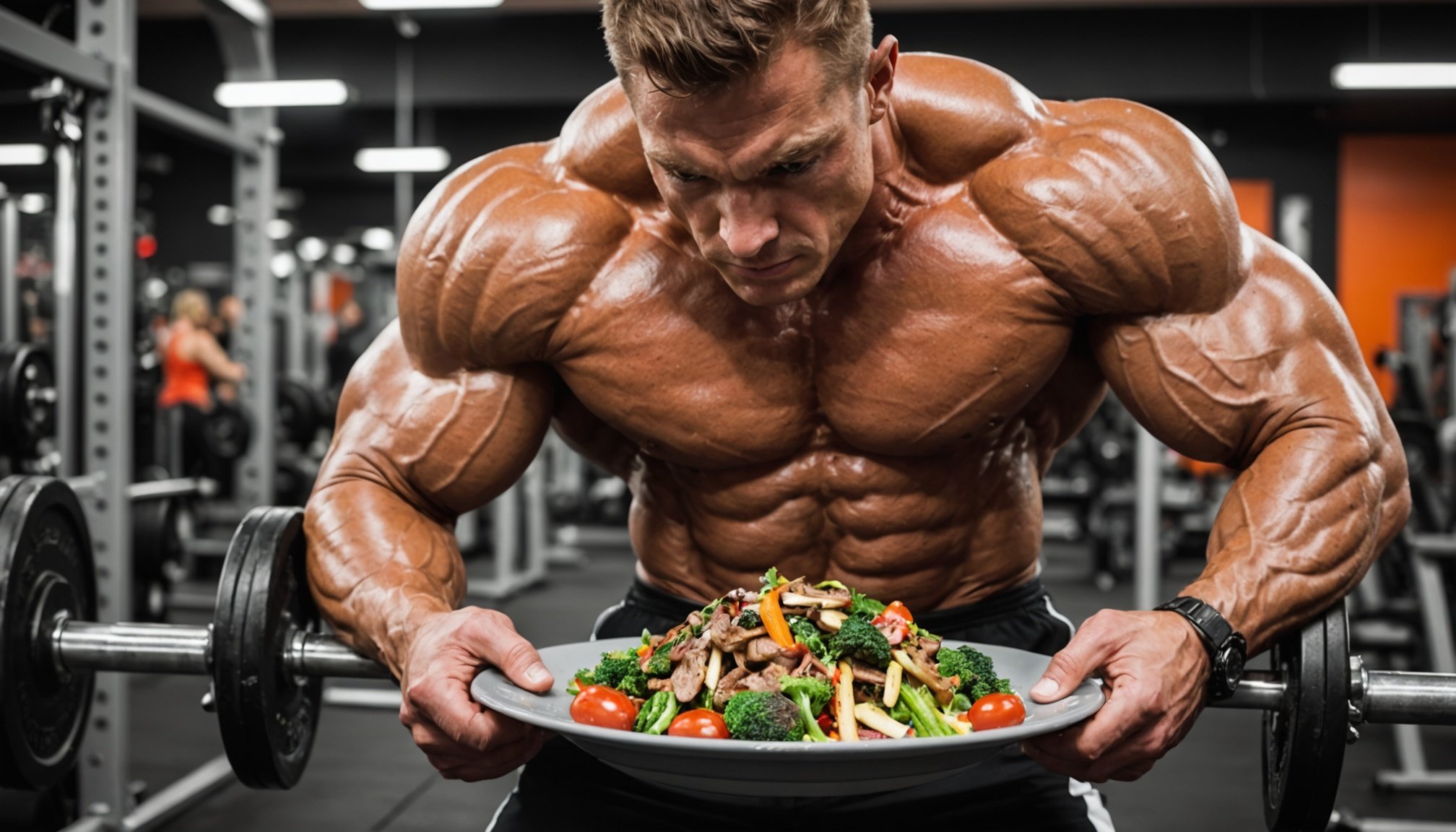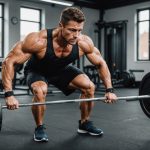Overview of Cutting Phase Nutrition
Delving into the cutting phase of bodybuilding, it serves as a strategic period aimed at reducing body fat while preserving muscle mass. This phase is crucial for bodybuilders seeking to showcase definition and muscle detail. Unlike bulking, which focuses on building mass, the cutting phase emphasizes fat loss strategies without compromising muscle integrity.
Proper bodybuilding nutrition is the cornerstone of a successful cutting phase. To achieve this, athletes must carefully adjust their macronutrient intake. Proteins, carbohydrates, and fats need to be meticulously balanced to support fat loss and muscle retention. Protein is increased to prevent muscle degradation, while carbohydrates are often reduced to promote the use of fat as an energy source.
Also to discover : Essential Ergonomic Tips for Cyclists: How to Avoid Wrist Pain on Your Rides
Fats, although commonly misunderstood, are vital; they should not be eliminated as they play a role in hormone production, which is essential for maintaining muscle during calorie deficits.
The meticulous adjustment of these macronutrients defines the science behind cutting phase nutrition. Tailoring intake based on individual needs and activity levels ensures that energy levels remain stable and that fat loss is optimally achieved. Herein lies the art of achieving a chiseled physique without sacrificing hard-earned muscle. By effectively implementing these fat-loss strategies, bodybuilders can navigate the challenges of the cutting phase successfully.
This might interest you : Unlock Your HIIT Potential: The Best Breathing Techniques for Enhanced Performance
Macronutrient Breakdown for Optimal Results
Achieving the desired results in a cutting phase requires a strategic balance of macronutrients: proteins, carbohydrates, and fats.
Importance of Protein Consumption
Protein intake is crucial during the cutting phase. For bodybuilders, it’s often recommended to consume about 1.2 to 1.6 grams of protein per kilogram of body weight. High-protein diets help in preserving muscle mass, a vital concern when reducing caloric intake. Sources of lean protein include chicken, turkey, fish, tofu, and legumes, which provide necessary amino acids without excess calories.
Carbohydrate Management
Carbohydrates are the body’s primary energy source, critical for maintaining performance levels. It’s essential to manage carb intake strategically to prevent fatigue. Carb cycling, where intake fluctuates between high and low over different days, can be effective. This method helps enhance energy levels during workouts while promoting fat loss. Complex carbohydrates such as oats, quinoa, and brown rice are excellent fuel sources during the cutting phase.
Healthy Fats and Their Role
Balancing fat intake is equally important. Incorporating healthy fats, like those found in avocados, nuts, and olive oil, aids in fat loss and supports hormone production. Timing fat consumption, such as including them in your evening meal, can help sustain energy levels throughout the day without hindering weight loss goals.
Meal Timing and Frequency
Understanding meal timing and frequency is vital in optimising both performance and recovery. One’s approach to meal timing can significantly affect workout results, especially during a cutting phase. Recognising when to consume food can provide not only the energy required for a robust workout but also aid in muscle recovery post-activity.
Pre-workout nutrition plays a crucial role in enhancing performance. Consuming a balanced meal rich in carbohydrates and protein approximately 1-3 hours before exercising can give an energy boost and increase endurance. This meal helps in maintaining blood sugar levels, allowing for more intense training sessions.
On the flip side, post-workout nutrition focuses on recovery. This meal should also contain a mix of carbohydrates and protein, ideally consumed within 30 minutes to two hours after workout completion. It helps in replenishing glycogen stores and repairing muscle tissues, which is essential for muscle growth and efficiency.
As for the frequency of meals, bodybuilders often adopt a strategy of eating 5-6 smaller meals throughout the day. This approach helps in managing hunger, maintaining energy levels, and ensuring a consistent intake of essential nutrients, crucial during the cutting phase to preserve muscle mass while reducing body fat.
Sample Meal Plans
Designing a cutting diet that supports your bodybuilding goals doesn’t have to be dull or monotonous. It’s essential to include meal plans that provide the necessary nutrients while keeping caloric intake in check. Let’s explore an example meal plan for a day.
Example Meal Plan for a Day
For breakfast, focus on a protein-rich meal to kickstart your metabolism. A bodybuilding recipe might include an omelette with egg whites, spinach, and tomatoes, providing a balance of protein and essential vitamins. Consider serving it with oatmeal to add complex carbohydrates for sustained energy.
Lunch should consist of lean protein, such as grilled chicken or turkey breast, coupled with diversified vegetables and quinoa. This supplies sustained energy and a full spectrum of nutrients necessary for your workout regimen.
Dinner can be a combination of baked salmon and steamed broccoli, ensuring omega-3 fatty acids intake for heart health and muscle recovery. Complementing it with a small serving of sweet potatoes provides additional carbohydrates.
Snack Options that Align with Cutting Goals
As for snacks, opt for low-calorie options like Greek yogurt with berries or a handful of almonds. These snacks provide healthy fats and proteins, essential for muscle retention. Avoid calorie-dense snacks, and instead, manage hunger with choices that sustain you throughout the day.
Supplements and Hydration
When entering a cutting phase, understanding the role of supplements and hydration is paramount. Specific supplements can enhance the efficacy of calorie restriction and exercise. Common choices include branched-chain amino acids (BCAAs), which support muscle retention, and multivitamins to cover dietary gaps. Additionally, Green Tea Extract is often chosen for its metabolism-boosting properties. Timing for these supplements usually coincides with workouts and meals to maximise absorption.
Hydration is equally crucial, as it affects both performance and well-being. During cutting, athletes often face reduced energy availability, making electrolytes vital for maintaining balance. These minerals—sodium, potassium, and magnesium—regulate nerve and muscle function. Without adequate hydration, the risk of cramps and impaired performance increases significantly.
To optimise hydration, drink steadily throughout the day rather than in large volumes at once. Hydration needs can vary, so it’s important to adjust based on activity levels and climate. Consider electrolyte-rich drinks, especially during intensive workouts, to replenish what is lost through sweat.
In summary, integrating supplements and hydration monitoring into your routine enhances the cutting phase’s overall efficiency, ensuring that muscle retention is supported while promoting optimal physical performance.
Managing Cravings and Energy Levels
Navigating the dietary journey often involves Cravings Management and Energy Maintenance. Establishing a balance is key to maintaining focus and stamina.
Strategies to Combat Cravings
To effectively manage cravings, consider Mindful Eating techniques. These involve paying full attention to the food you eat, savouring each bite, and recognising hunger cues. Practical tips to curb cravings include:
- Planning meals ahead of time to avoid impulsive eating
- Incorporating a balance of macronutrients to keep hunger at bay
- Staying hydrated as thirst can often be mistaken for hunger
Mindful eating also encompasses mental well-being, crucial for dietary adherence. Techniques such as meditation or journaling can help manage the stress often associated with dietary changes.
Maintaining Energy for Workouts
Energy Maintenance is vital for sustaining performance throughout the day, particularly when engaging in intense workouts. Meal composition plays a crucial role in this. A balanced diet rich in complex carbohydrates, proteins, and fats can prevent energy crashes.
Additionally, adequate sleep and recovery are paramount. Aiming for consistent sleep schedules can enhance physical and mental recovery, ensuring you’re refreshed and ready for daily activities. Remember, it’s about maintaining a holistic approach to both dietary habits and lifestyle for sustained energy and wellbeing.






